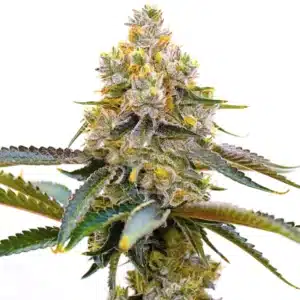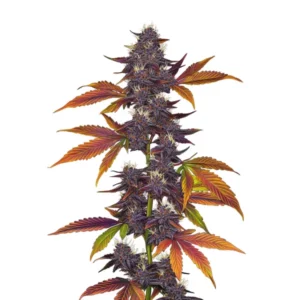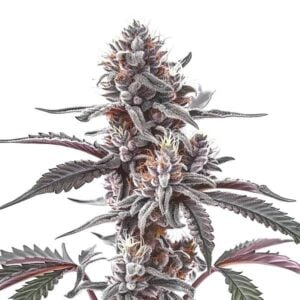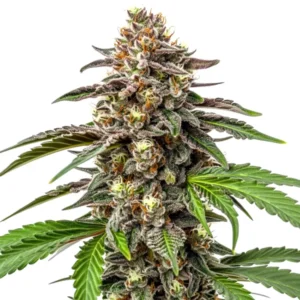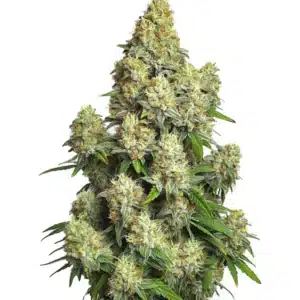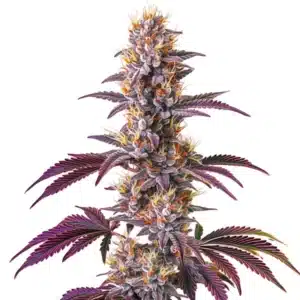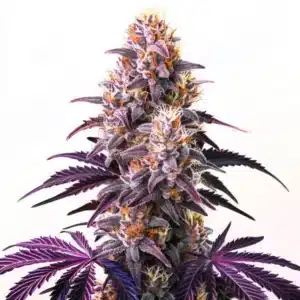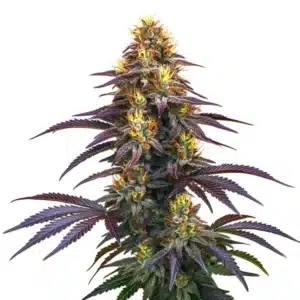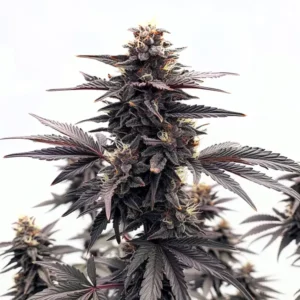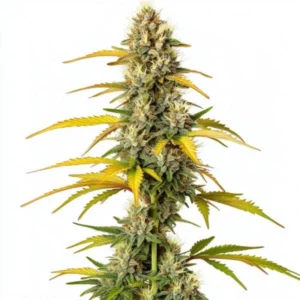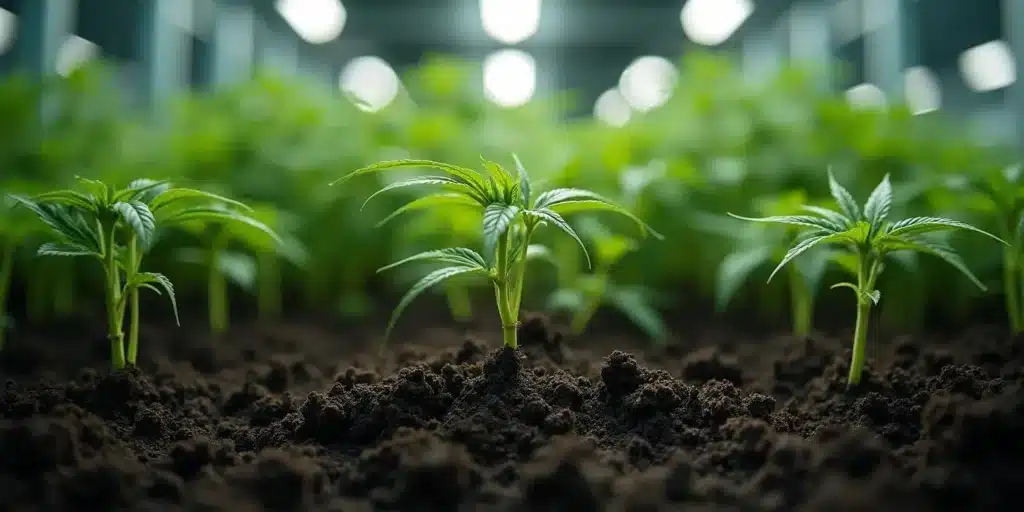
Cannabis Root Stalks Black: What it Means and How to Use Them
When growing cannabis, the appearance of black cannabis root stalks can catch you off guard. These stalks are part of the plant’s root system, which is crucial for nutrient uptake and stability. The key to diagnosis is observing their condition. Healthy roots, even if they are not the typical white color, must always have a vibrant and shiny appearance. If the roots look pale, dull, or are turning brown, it is a strong indicator of root rot or dryness and requires immediate attention. While the black discoloration on cannabis root stalks might seem alarming, it’s not always a sign of trouble if the roots are otherwise healthy.
Black cannabis root stalks can have several causes, ranging from environmental factors to genetic traits. Some strains naturally develop black hues in their stalks. If the stalks are firm and the plant is thriving, it could simply be a unique trait.
Recommended Strains
Amnesia Purple
|
|
THC | 18% - 21% (Medium) |
|
|
Type | Feminized |
|
|
Yield | Medium |
|
|
Phenotype | 30% Indica / 70% Sativa |
Auto Purple CBD
|
|
CBD | 17% – 19% (Medium) |
|
|
Type | CBD Autoflowering |
|
|
Yield | Low |
|
|
Phenotype | 70% Indica / 30% Sativa |
Significance of Black Cannabis Root Stalks
Black cannabis root stalks often indicate a robust plant, capable of withstanding various environmental stresses. In some cases, black discoloration is a protective response, where roots may darken to shield the plant from harmful pathogens. Furthermore, the pigmentation in black root stalks could help in absorbing certain wavelengths of light. Black roots can also be indicative of genetic diversity and adaptability.
Environmental Factors Affecting Root Color
Temperature and humidity play roles in the appearance of black root stalks. Soil temperature, in particular, has a strong influence on root health and color. Discolorations often occur in soil that is either too hot or too cold, as these temperature extremes stress the root system. Cooler air temperatures can enhance pigmentation, leading to darker roots.
Soil conditions also affect root coloration. Rich, well-aerated soil promotes healthy root development, which might include darker hues. Environmental stressors such as drought or nutrient deficiencies can also contribute to discoloration.
Promos & Deals
Cannabis Root Stalks Black: Benefits and Uses
Black cannabis root stalks offer several benefits. They often indicate a mature and nutrient-rich plant. These roots are also a source of valuable compounds, and their use in herbal medicine is gaining attention. The compounds extracted may have properties that support pain relief and inflammation reduction.
How to Use Black Cannabis Root Stalks
Harvested black cannabis root stalks can be used to make teas, which are believed to have anti-inflammatory properties. Simply clean the roots, chop them, and steep in boiling water. Another way to use these stalks is in topical treatments. By grinding the roots into a powder and mixing with oils or lotions, you can create balms for skin irritations and muscle soreness.
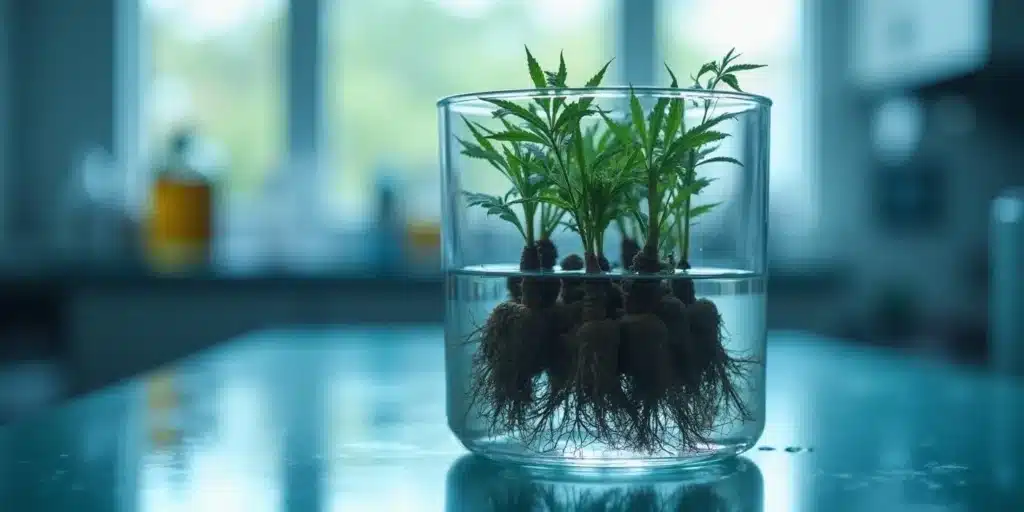
Common Concerns with Black Root Stalks
While black root stalks can be normal, they sometimes signal issues. If the rest of the plant shows signs of stress, such as wilting or yellowing leaves, investigate further. Regular monitoring can help you spot problems early. Check the roots and soil for any unusual odors or textures. Healthy root systems should smell earthy and feel firm. Any mushiness or foul smell may require immediate action.
Preventing Problems with Cannabis Roots
Maintaining optimal growing conditions is key. Ensure your plants receive adequate light and airflow to reduce humidity. Feed your plants a balanced nutrient mix and follow feeding schedules specific to your strain.
A highly effective way to protect your roots is by applying a layer of mulch to the topsoil. Mulch helps maintain consistent soil moisture and, more importantly, protects the root zone from extreme external temperature variations. This stabilization can prevent many of the stress-related issues that lead to discoloration and other root problems.
Implementing a regular watering schedule can prevent overwatering, a common cause of blackening and decay. Ensuring proper drainage and avoiding waterlogged conditions help keep roots healthy.
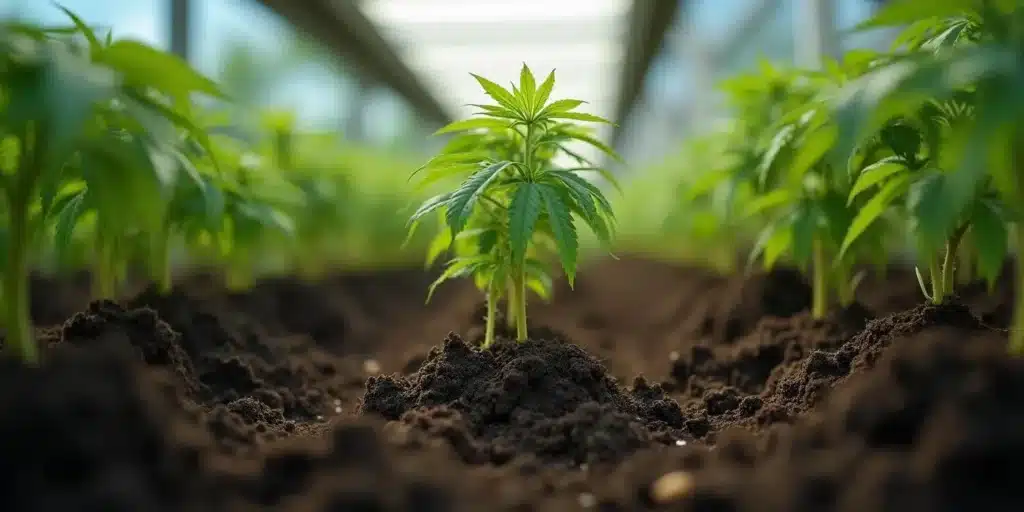
FAQs About Cannabis Root Stalks Black
What causes black discoloration on cannabis root stalks?
Black discoloration on cannabis root stalks can be due to several factors, including genetics and environmental conditions. Some strains naturally develop darker roots as they mature, which is not necessarily a problem. However, stress factors such as poor drainage or nutrient imbalances can also lead to discoloration.
Growers should consider the overall health of the plant when assessing roots. If only the roots are blackened but the plant appears healthy, it might be a characteristic of the strain. If the plant shows signs of distress, it could indicate an underlying issue needing correction.
To better understand the causes of black discoloration on cannabis root stalks, it’s helpful to monitor environmental factors such as soil pH and moisture levels. Ensuring these are within optimal ranges can prevent stress-related discoloration and support healthy root development.
Additionally, consulting with experienced growers or horticultural experts can provide valuable insights into managing and interpreting black root stalks. Their expertise can help identify whether the discoloration is a natural trait or a symptom of a larger problem, allowing for timely intervention.
Are there cannabis strains known for black root stalks?
Yes, certain strains are more likely to display black root stalks. For example, strains like Black Domina and Blackberry Kush are known for their darker features. These strains can produce roots with unique pigmentation, contributing to their overall appeal.
When selecting seeds from Blimburn Seeds, keep in mind that genetics play a significant role in plant characteristics. Choosing a strain known for its vibrant root colors can add an interesting aspect to your cultivation experience.
Exploring strains with black root stalks can enhance your garden’s aesthetic and diversity. These unique characteristics add a level of intrigue and distinction to your cultivation efforts, offering a talking point for fellow enthusiasts and growers.
For those interested in breeding, incorporating strains with black root stalks into your genetic pool can help create new varieties with desirable traits. This innovative approach can lead to exciting developments in cannabis cultivation and expand the possibilities for future harvests.
Can black cannabis root stalks be used medicinally?
Black cannabis root stalks for medicinal use are gaining interest due to their potential health benefits. While not as commonly used as other parts of the plant, roots contain compounds that may offer therapeutic effects, such as pain relief or anti-inflammatory properties.
Experimenting with root-based preparations, like teas or topical treatments, can provide alternative ways to utilize your harvest. Always ensure that any homemade remedies are safe and suited to your needs before use.
Research into the medicinal properties of black cannabis root stalks is still emerging, but preliminary findings suggest potential benefits for conditions like arthritis or chronic pain. This area of study is promising for those seeking natural alternatives to traditional medications.
As interest in holistic health continues to grow, the exploration of black cannabis root stalks for medicinal use may lead to new discoveries and applications. Staying informed about ongoing research can help you make educated decisions about incorporating these roots into your wellness routine.
How should I manage black root stalks during cultivation?
Proper management of black root stalks involves maintaining good cultivation practices. Ensure your plants have the right balance of nutrients, light, and water. Regularly check your plants for signs of stress, and adjust your care routine as needed.
Preventative measures, such as using clean tools and monitoring environmental conditions, help maintain healthy roots. Being proactive in your approach can lead to a successful harvest with vibrant plants.
Integrating technology such as soil moisture sensors and automated irrigation systems can enhance your ability to manage black root stalks effectively. These tools provide real-time data, allowing you to adjust conditions promptly and maintain optimal growing environments.
Networking with other growers and participating in forums or workshops can also provide valuable insights and shared experiences. Engaging with the community can help you stay up-to-date on best practices and innovative techniques for managing black root stalks during cultivation.
Is it normal for cannabis root stalks to turn black with age?
As cannabis plants mature, changes in root color can occur. Blackening of root stalks is sometimes part of the aging process, particularly for certain strains. This can be a natural progression rather than a cause for concern.
However, it’s essential to differentiate between natural aging and potential issues. Observing the overall health of your plant and consulting resources like Blimburn Seeds for strain-specific information can help you make informed decisions.
If you notice black root stalks developing as your cannabis plants age, consider the strain’s characteristics and growth patterns. Understanding these elements can provide reassurance that the discoloration is a normal aspect of the plant’s life cycle.
For those cultivating multiple strains, comparing root colors and growth habits can offer additional context and insights. This comparative approach ensures that any changes in root color are understood within the broader framework of your cultivation efforts.


